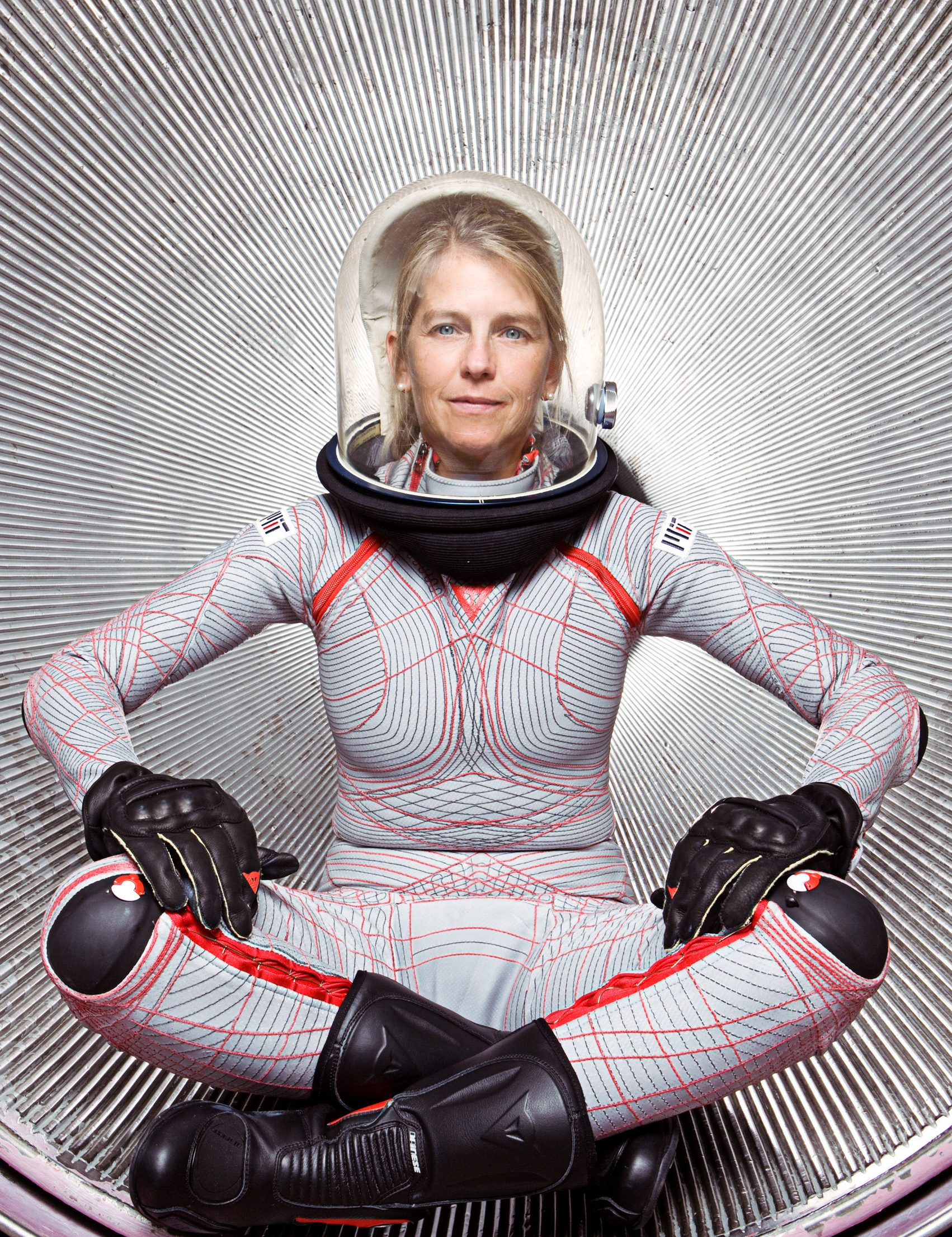Media Lab’s new head
Aero-astro professor Dava Newman, noted for her pioneering spacesuit designs, will take over in July.

After a worldwide search that turned up 60 candidates, the MIT Media Lab has announced that Dava Newman, SM ’89, SM ’89, PhD ’92, an MIT professor of astronautics, will become its new director on July 1.
Newman, whose work has integrated engineering, design, and biomedical research with an eye to improving human performance in space, is well known for developing the BioSuit, an advanced “second skin” spacesuit that could allow astronauts to move more naturally in zero gravity. Her career interests also encompass educational innovation and access, climate change, the performing arts, and science and technology policy. She directed MIT’s Technology and Policy Program from 2003 to 2015, was named a MacVicar Faculty Fellow, and served as head of house at Baker House for a decade. The principal investigator for four space missions, Newman was deputy administrator of NASA from 2015 to 2017, the first female engineer in this role.
With this background, she brings a boldly interdisciplinary perspective to a lab famous for its free-ranging approach to technological innovation. “She is a designer, a thinker, a maker, an engineer, an educator, a mentor, a convener, a communicator, a futurist, a humanist and, importantly, an optimist,” Dean Hashim Sarkis wrote in his letter announcing the selection.
“I really see the MIT Media Lab as the best place in the world to bring together science, engineering, art, and design to creatively deal with the huge challenges humanity is facing,” Newman says. “The magic of the Media Lab—which I hope to help build on—is to provide a trusted, open-minded, stimulating space where each person can contribute extraordinary expertise while being stretched beyond their comfort zone to collectively imagine a better, bolder future.”
Keep Reading
Most Popular
Large language models can do jaw-dropping things. But nobody knows exactly why.
And that's a problem. Figuring it out is one of the biggest scientific puzzles of our time and a crucial step towards controlling more powerful future models.
How scientists traced a mysterious covid case back to six toilets
When wastewater surveillance turns into a hunt for a single infected individual, the ethics get tricky.
The problem with plug-in hybrids? Their drivers.
Plug-in hybrids are often sold as a transition to EVs, but new data from Europe shows we’re still underestimating the emissions they produce.
Stay connected
Get the latest updates from
MIT Technology Review
Discover special offers, top stories, upcoming events, and more.